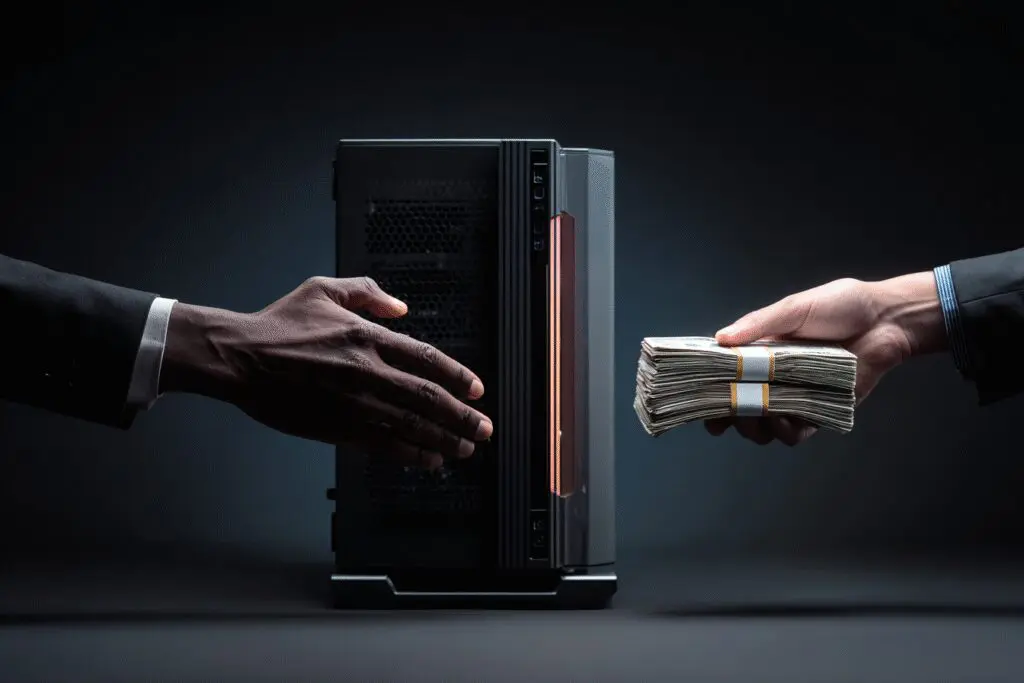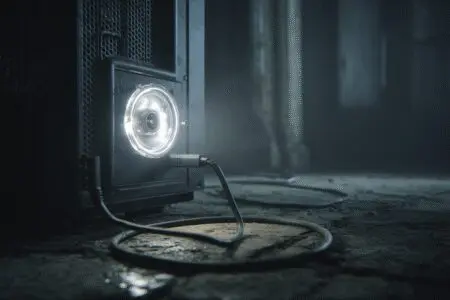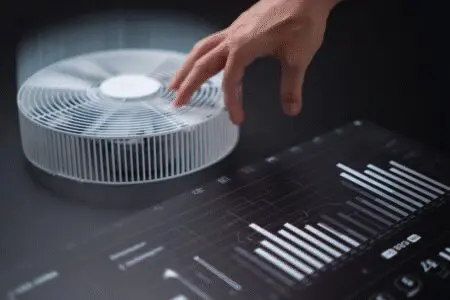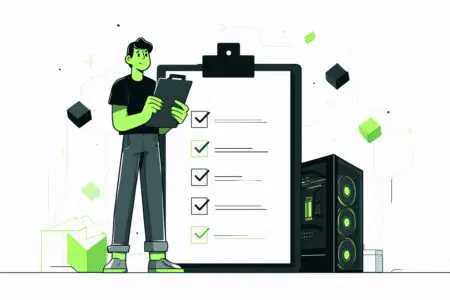That beautiful rig sitting on your desk, the one that’s powered countless victories and late-night gaming sessions, might be ready for a new home. Maybe you’ve just upgraded, or perhaps life has gotten in the way and it’s time to cash in. Whatever the reason, you’re now asking the big question: Where to sell my gaming PC for the best price and least amount of hassle? I’ve been there. A couple of years ago, I had to part with my custom-built machine, and navigating the options felt like a quest in itself.
This guide is the map I wish I had. We’re going to break down everything, from prepping your PC for its new owner to exploring the best online marketplaces, local selling strategies, and even trade-in options if you just want it gone fast. So, let’s get that rig ready for a new life and put some cash back in your pocket.
More in PC Maintenance Category
How Many Amps Does a Gaming PC Use
What Are Good Specs for a Gaming PC
What to Look for in a Gaming PC
Before You Sell: How Do I Get My Gaming PC Ready for a New Owner?
Before you even think about listing your PC, there are a few absolutely critical steps you need to take. Skipping these can lead to lost data, security risks, and a lower selling price. Think of it as detailing a car before you sell it; a little effort upfront makes a huge difference.
Why is Backing Up Your Data So Important?
First and foremost, your personal files. We pour so much of our lives into our computers. This includes everything from priceless family photos and important documents to years of game saves you don’t want to lose.
Before you do anything else, grab an external hard drive or use a cloud service like Google Drive or Dropbox. Consequently, you should copy over everything you can’t live without. Double-check your folders—Documents, Pictures, Downloads, Desktop—and make sure you’ve got it all. It’s a simple step that can save you from a major headache later.
How Do I Completely Wipe My Hard Drives?
This is non-negotiable. Simply deleting your files or formatting the drive isn’t enough to permanently erase your data. For your security, you need to perform a secure wipe to ensure your personal information is gone for good.
Thankfully, Windows has a built-in tool that makes this pretty easy.
- Go to Settings > Update & Security > Recovery.
- Under “Reset this PC,” click Get started.
- Choose Remove everything. This option cleans the drive, making it extremely difficult for anyone to recover your old files.
- For an even more secure wipe, you can go into “Change settings” and enable the data erasure option. This will take longer but offers more peace of mind.
Properly erasing your data protects your identity and privacy. Moreover, it gives the new owner a fresh, clean start, just like a brand-new computer. For those interested in the environmental impact of old electronics, it’s also the first step before proper disposal. The United States Environmental Protection Agency provides excellent resources on electronics donation and recycling, which is a great alternative if you decide not to sell.
What’s the Best Way to Clean My PC Physically?
Presentation matters. A lot. I once bought a used PC that arrived looking like it had been stored in a dryer lint trap. It immediately made me question how well the owner had taken care of the internal components. Don’t be that person.
A clean PC looks more valuable and shows the buyer you cared for your hardware.
- Exterior: Use a microfiber cloth to wipe down the case, side panels, and any glass. A little bit of glass cleaner on the cloth (not sprayed directly on the panel) can work wonders.
- Interior: This is where the magic happens. Unplug the computer completely and get a can of compressed air. Use short bursts to blow dust out of the fans, heatsinks, and crevices. Hold the fans in place with a finger so they don’t spin too fast, which can damage them.
- Filters: Most modern cases have dust filters. Slide them out, give them a good rinse with water, let them dry completely, and pop them back in.
A sparkling clean rig looks like it runs better, even if it’s just psychological. It builds trust with the potential buyer.
Should I Take High-Quality Photos?
Absolutely, yes. Your photos are your first impression and the single most important part of your online listing. Bad photos will sink your sale before it even starts.
- Lighting is Key: Take pictures in a well-lit room or use natural light from a window. Avoid harsh shadows.
- Show It Off: Turn the PC on so any RGB lighting is visible. This is a huge selling point for gaming PCs.
- Multiple Angles: Get shots of the front, back (to show the ports), and both sides. Definitely take a clear shot of the inside with the side panel off to show off your clean cable management and components.
- Be Honest: If there’s a scratch or a small dent on the case, take a picture of it. Honesty prevents issues with the buyer later and shows you’re a trustworthy seller.
Where Can I Sell My Gaming PC Online for the Best Price?
Selling online gives you the biggest audience, but it also comes with its own set of challenges, like shipping and fees. Let’s look at the most popular options.
Is eBay Still a Good Place to Sell Computer Parts?
eBay is the old giant of online marketplaces. It has an enormous, worldwide audience, which means more potential buyers might see your listing. This competition can sometimes lead to bidding wars that drive up the final price.
However, there are downsides. eBay’s fees can be significant, often taking over 10-13% of your final sale price. Shipping a large, heavy gaming PC is also a major hassle. You have to find a sturdy box, buy a ton of packing material, and hope it doesn’t get damaged in transit. On top of that, you have to be wary of potential buyer scams.
My take: I sold an old GPU on eBay and got a great price, but after the fees and the stressful shipping process, I’ve been hesitant to sell a full system there. It’s a powerful platform, but you need to go in with your eyes open.
What About Selling on Facebook Marketplace?
Facebook Marketplace has exploded in popularity for local sales. Its biggest advantage is that you’re typically selling to people in your area, which completely eliminates the nightmare of shipping. Plus, there are no selling fees.
The platform is easy to use; you can have a listing up in minutes right from your phone. However, be prepared for an onslaught of messages. Many of them will be lowball offers or people asking “Is this still available?” and then never responding again.
You also have to manage the meetup yourself. For safety, always:
- Meet in a busy, public place. The parking lot of a police station is a fantastic option.
- Don’t go alone if you can help it.
- Deal in cash to avoid scams with payment apps.
Have You Considered Specialized Tech Marketplaces like Jawa.gg?
If you’re looking for a more focused audience, a site like Jawa.gg is a fantastic choice. It’s a marketplace built specifically for PC gamers and builders. Everyone on there knows what they’re looking for, so you won’t get as many silly questions or ridiculous lowball offers.
Jawa offers seller protection and helps streamline the process. They verify components and can help mediate any disputes. The downside is that the audience is much smaller than eBay’s, so your PC might sit for a bit longer. However, you’re selling to an enthusiastic community that appreciates good hardware.
Where to Sell My Gaming PC if I Want to Avoid Shipping?
If packing up a 40-pound tower of glass and metal sounds like your worst nightmare, then selling locally is definitely the way to go. You get cash in hand and the deal is done in a day.
Is Craigslist Still a Viable Option for Selling Electronics?
Craigslist is the original local marketplace. It still works, and plenty of people browse it for deals on electronics. The interface is a bit dated compared to Facebook Marketplace, but its simplicity is also a strength.
The pros are that it’s free, local, and straightforward. The cons are the same as any local platform: you need to be cautious about scams and prioritize your safety during meetups. I find that Craigslist often attracts more serious buyers than Facebook Marketplace, but your experience may vary depending on your city.
What Should I Know About Local Meetups?
Safety is paramount when you’re meeting a stranger to exchange a high-value item. Never, ever invite someone to your home.
Here’s a quick checklist for a safe transaction:
- Public Location: Choose a bank, a busy coffee shop, or a police station lobby/parking lot.
- Bring a Friend: There’s safety in numbers.
- Test the Item: If possible, meet somewhere with a power outlet so the buyer can see the PC turn on and boot up. This provides them with confidence and protects you from a buyer claiming it was “dead on arrival.”
- Payment: Cash is king. For digital payments, use a service like Zelle that is a direct bank transfer and cannot be easily reversed. Be careful with apps like Venmo or Cash App, as fraudulent buyers can sometimes reverse payments after the fact.
Are There Local PC Repair Shops That Buy Used Rigs?
This is an often-overlooked option. Many independent computer repair shops buy used hardware to refurbish and sell. This is one of the safest and fastest ways to sell your PC.
You can walk in, get a quote, and walk out with cash in under an hour. However, there’s a trade-off. The shop needs to make a profit, so they will offer you significantly less than what you could get from a private sale. You are paying for convenience and security. I offloaded an older system this way once; I knew I was losing a couple hundred dollars compared to a private sale, but the sheer ease of the transaction was worth it at the time.
How Do I Figure Out How Much My Gaming PC is Worth?
Pricing your PC is part art, part science. Price it too high, and it will sit forever. Price it too low, and you’re leaving money on the table.
What’s the Best Way to Research Component Prices?
The most reliable method is to check recent sale prices on eBay.
- Search for your specific component (e.g., “NVIDIA RTX 3070”).
- On the left-hand sidebar, scroll down and check the box for “Sold Items”.
- This will show you what people have actually paid for that exact part in the last few weeks.
- Do this for your main components: CPU, GPU, RAM, and maybe your main SSD.
Add up the values of the key components. As a general rule, you should then discount that total by about 10-20% for selling it as a complete system. The buyer is paying for the convenience of not having to build it themselves, and you’re getting the convenience of selling it all at once.
What Information Should I Absolutely Include in My Listing?
Clarity is your best friend. A buyer shouldn’t have to ask you for the basic specs. Create a clear, easy-to-read list right at the top of your description.
Example Spec List:
- CPU: Intel Core i5-12600K
- GPU: NVIDIA GeForce RTX 3060 Ti 8GB
- RAM: 32GB Corsair Vengeance DDR4 3200MHz
- Motherboard: MSI PRO Z690-A
- Storage: 1TB Samsung 980 Pro NVMe SSD
- Power Supply: Corsair RM750x 750W 80+ Gold
- Case: Lian Li Lancool 215
In addition to the specs, briefly describe its performance. For instance, “This machine is a beast for 1080p or 1440p gaming. It easily handles titles like Baldur’s Gate 3, Call of Duty, and Cyberpunk 2077 on high settings.” This helps buyers understand what the PC can do in real-world terms.
How can I write a description that sells?
After the specs, write a short, friendly paragraph. This is your chance to connect with the buyer. Be honest and personable.
- Be Honest: If a USB port on the front is a bit finicky or there’s a scuff on the side panel, mention it. This builds trust and prevents any disagreements later.
- Highlight the Positives: Did you just install a brand-new power supply? Is your cable management exceptionally clean? Mention it!
- State Your Reason for Selling: A simple “I recently upgraded and no longer need this one” is perfectly fine.
- Define the Terms of Sale: Clearly state “Local pickup only, cash only” or your preferred terms to filter out buyers who aren’t a good fit.
Ultimately, selling your gaming PC comes down to balancing price, convenience, and safety. By preparing your machine properly and choosing the right platform for your needs, you can ensure a smooth transaction and find a great new home for your trusted gaming companion.
Frequently Asked Questions

What should I consider when pricing my used gaming PC for sale?
Research similar PCs on auction sites like eBay, local marketplace listings, and price calculators to determine a fair value. Be ready to negotiate by setting an asking price slightly higher than your minimum acceptable price.
Which online platforms are best for selling my gaming PC to reach a wider audience?
Popular online platforms include eBay, Facebook Marketplace, and Reddit’s hardware swap communities. These sites have many tech-savvy buyers and are user-friendly.
What are effective methods for taking good photos of my gaming PC for a sale listing?
Use natural light for bright photos, take pictures from all angles including inside the case, and clearly show any blemishes; good photos help make your listing look attractive and increase buyer confidence.
How can I securely wipe my personal data from my gaming PC?
To securely delete your personal data, use specialized tools to wipe the hard drive completely, ensuring all files, passwords, and private information are permanently removed, and then install a fresh copy of Windows for the new owner.
Why is it important to clean my gaming PC before selling?
Cleaning your gaming PC before selling it improves its appearance, making it look almost new, and shows buyers that you have taken good care of it, which can lead to a better selling price.





